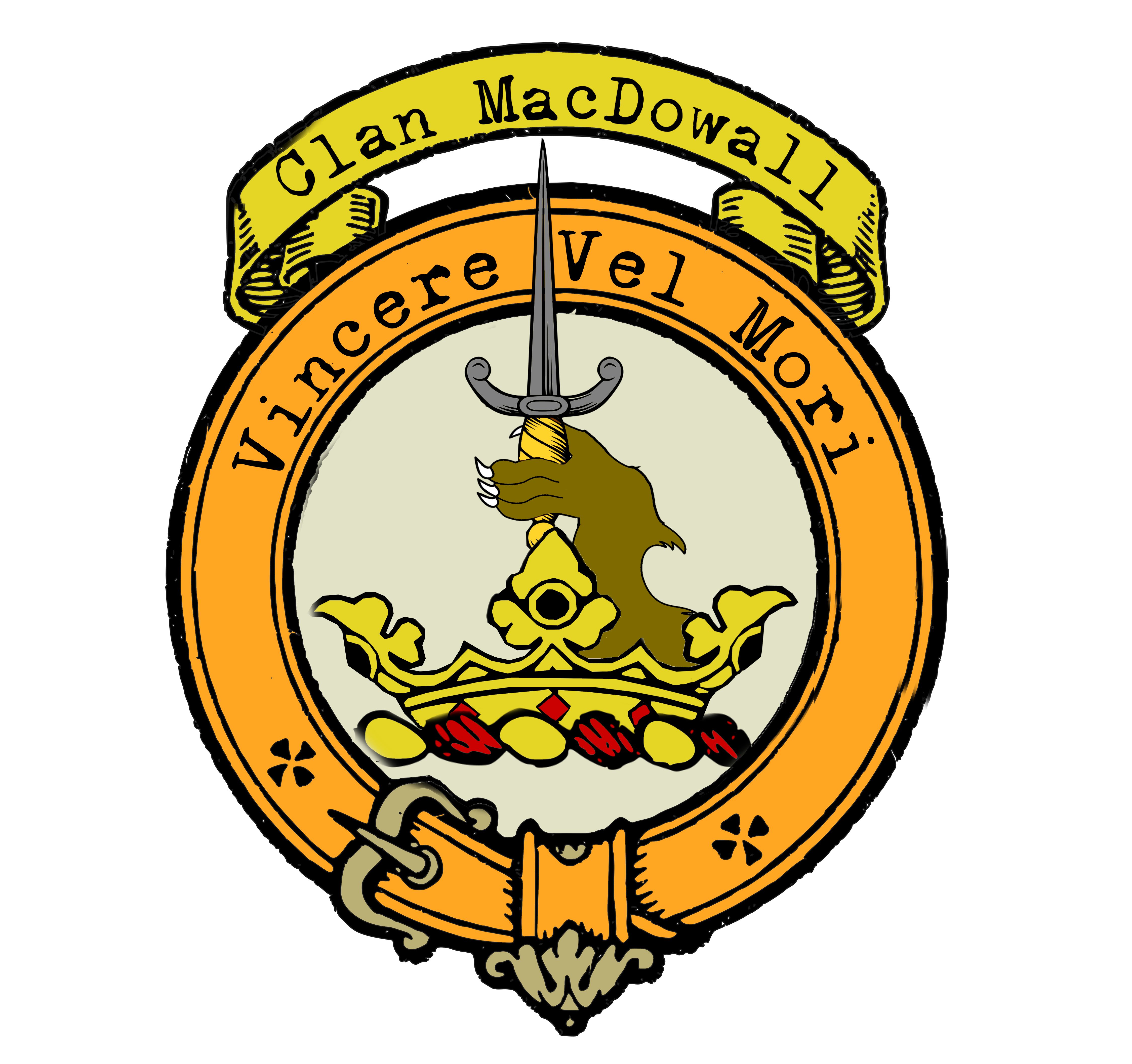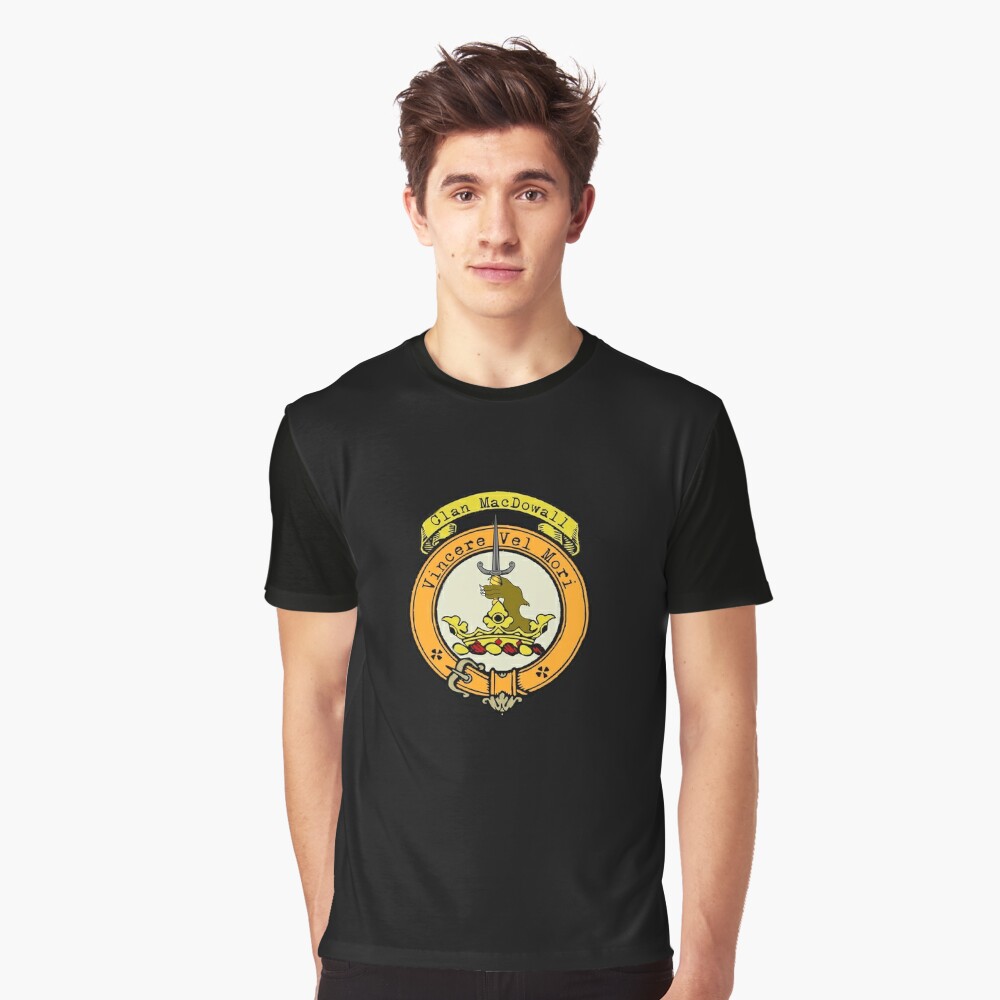Clan MacDowall
|
|
CREST: Issuant from a crest coronet Or, a lion’s paw erased and erected Proper holding a dagger point upwards Proper, hilted and pommelled Or MOTTO: Vincere vel mori TRANSLATION: To conquer or die VARIATIONS: McDowall |
| The roots of Clan MacDowall trace back to the district of Galloway in the southwest of Scotland. The name “Galloway” itself derives from the Galli, or Gaelic settlers of the 7th and 8th centuries. Legends shroud the foundation of the princedom of Galloway, and the MacDowalls played a significant role in these narratives.
The Lords of Galloway were a powerful force, adorning their princedom with endowed abbeys and priories. Fergus of Galloway, a prominent figure during the reign of David I, divided his princedom among his sons. One notable descendant was Dougal, who received a charter of the lands of Garthland from Balliol, Lord of Galloway, in 1295. The MacDowalls proudly resisted Roman encroachment, and their defiant spirit is said to have influenced their coat of arms, depicting a fierce lion royally crowned. Later, Dougal and Fergus M’doual were recorded on the Ragman Roll of nobles in 1296, swearing fealty to Edward I of England. Throughout the centuries, the MacDowalls held positions of influence and faced tragic losses. They produced notable figures such as Sir Fergus Macdowall, who was taken prisoner by the English at the Battle of Homildon in 1401. Uchtred, the ninth of Garthland, and his son Tomas were among those who perished at the Battle of Flodden in 1513, alongside King James IV and the Scottish chivalry. Clan MacDowall’s history is not devoid of dynastic disputes and political intrigue. John, the eleventh Laird, lost his life opposing Henry VII’s invading army at Pinkie in 1547. His son Uchtred, the twelfth Laird, found himself implicated in the Raid of Ruthven in 1582. The MacDowalls navigated treacherous waters, seeking pardons and charters to secure their status and lands. Despite the challenges faced by the clan, the MacDowalls remained prominent in Scottish society. James and William, the sixteenth and seventeenth lairds, served as Members of Parliament for Wigtonshire during the 17th century. James Macdowall, a grandson of William, even rose to the position of Lord Provost of Glasgow. The MacDowalls went through transitions and shifts in their ancestral lands. William, who succeeded as Laird of Garthland, sold the original Garthland in Galloway but transferred the name to his estate in Lochwinnoch, Renfrewshire. Eventually, the chiefly family emigrated to Canada at the end of the 19th century, with Henry MacDowall being called to the Bar in British Columbia in 1920. |
|
Citations:
|
|

Purchase @ Redbubble
Purchase @ Amazon.com
Purchase @ Amazon.co.uk

